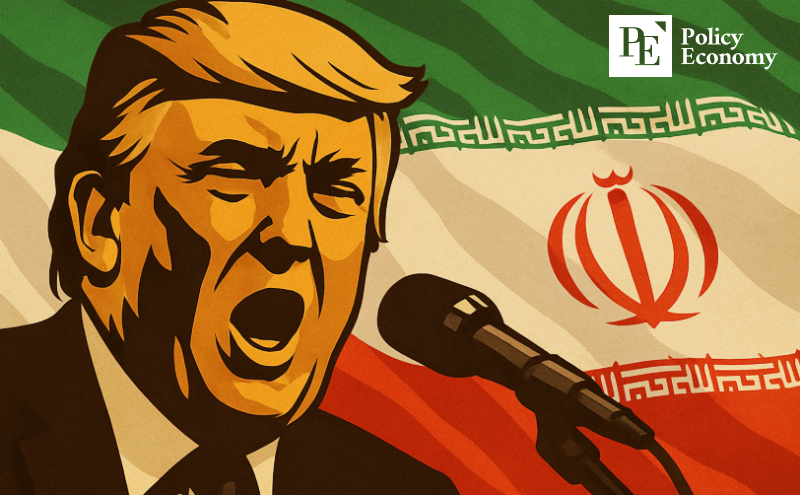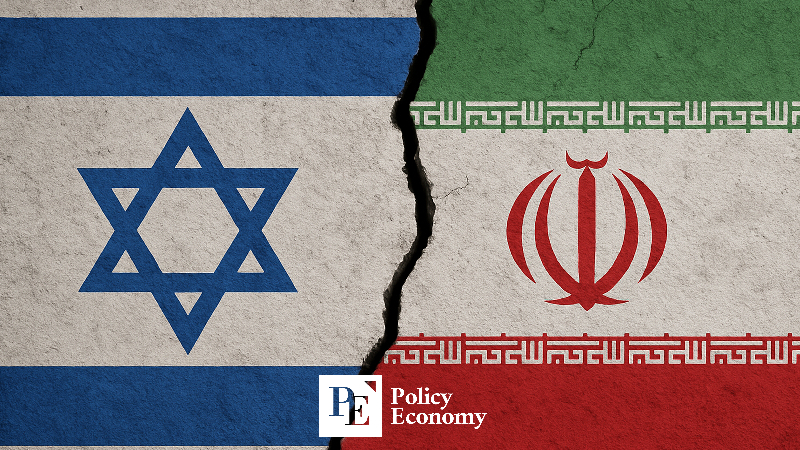Trump Says He's Confident About Nuclear Deal with Iran — Was It a Setup Using Israel?
Input
Modified
Signs of Returning to ‘Maximum Pressure, Then Negotiation’ Pattern Anti-U.S. Sentiment Grows in Iran: “The Real Enemy Is America” Consensus on Need for Talks, But Timing Remains Uncertain

Following Israel’s airstrikes on Iran, U.S. President Donald Trump has stepped to the forefront, confidently asserting that a nuclear agreement with Iran is imminent. While the U.S. has not engaged directly, it appears to be using Israeli military pressure as indirect leverage in negotiations. Within Iran, the dominant perception is that the real adversary is not Israel but the U.S., and resistance to Trump’s coercive negotiation tactics is growing. Though there is strong recognition of the need for diplomacy, lingering distrust from past betrayals continues to act as a major barrier.
Israel Acts, But the U.S. Gains
On June 16 (local time), after attending the G7 summit in Alberta, Canada, Trump told reporters: “As I’ve said repeatedly, Iran will soon sign a nuclear agreement with the United States. If they don’t, it just means they’re stupid.” Under his second administration, the U.S. has resumed nuclear talks with Iran five times. The sixth round, scheduled for June 15, was canceled after Israel launched a preemptive strike on Iran on June 13.
Trump’s optimistic remarks align with some diplomatic forecasts suggesting that both Iran and the U.S. want a nuclear deal, and that the U.S. is likely to broker a deal on favorable terms by mediating the conflict. Robert Malley, former U.S. envoy to Iran under the Biden administration, commented, “At some point, not too far off, the U.S. will likely restrain Israel. Trump still seems to prefer a negotiated deal over war.”
There is precedent for Trump using other nations' military actions as strategic leverage. During his first term, he repeatedly employed sanctions and heightened tensions to drag adversaries to the negotiating table. Analysts believe this current situation reflects a similar approach—only now, Israel is the tool. This leaves Iran in a position where it is being pressured without a direct confrontation with the U.S.. At the same time, Trump seeks to reap political gains through indirect military pressure from Israel.

Netanyahu Strengthens the Narrative: “Iran Tried to Assassinate Trump”
Israeli Prime Minister Benjamin Netanyahu added weight to this interpretation by claiming that Iran had attempted to assassinate President Trump. In an interview with Israeli media on June 15, he said, “Trump refused to follow the fake diplomatic route with Iran that others took—one that enabled uranium enrichment and handed out billions of dollars. He made it clear by eliminating Iran’s Revolutionary Guard commander that Iran cannot have nuclear weapons or enrichment.”
Netanyahu also described himself as Trump’s “junior partner” and justified the airstrike as a necessary move to prevent Iran from developing nuclear weapons. “Our preemptive strike has significantly delayed Iran’s nuclear program,” he said. “This protects not only Israel, but the entire world.”
Meanwhile, Iranian hostility is increasingly directed toward the U.S. Though military clashes continue with Israel, Iran’s political and diplomatic messaging is clearly focused on Washington. The Iranian government has been stoking anti-American sentiment to unite the public against external pressure. State-run and conservative media continue to attack the U.S.-led international order.
The situation worsened after Trump’s statement urging Tehran to “evacuate immediately,” accompanied by a deployment of additional U.S. forces to the region. CNN reported that the aircraft carrier USS Nimitz (CVN-68) canceled its planned port call and is heading to the Middle East. U.S. Defense Secretary Pete Hegseth stated, “Protecting U.S. forces is our top priority. This deployment strengthens our defense posture in the region.” Iran perceives this as a clear signal that the U.S. may be on the verge of a full-scale conflict.
Gap Between U.S. Optimism and Iran’s Cautious Calculations
Whether Trump can achieve the deal he envisions remains uncertain. During his first term, he famously invalidated a signed agreement with North Korea after the Singapore summit, abruptly collapsing the negotiations. Iran remembers this clearly—and also notes that the international community failed to stop it. Even if Iran returns to the negotiation table, deep fears of betrayal persist.
These concerns span the Iranian political spectrum. Both hardliners and reformists view Trump’s administration as untrustworthy. Trump's recent comment—“If Iran doesn’t sign, it’s stupid”—has further inflamed tensions, with many now viewing the situation as a battle for national pride rather than a diplomatic issue. The desire to avoid “humiliation” is now a major obstacle to compromise with the U.S.
However, Iran cannot afford to reject negotiations entirely. More than a decade of U.S.-led sanctions has left the Iranian economy in a severe crisis. Currency collapse, shortages of essentials, and high youth unemployment have pushed public frustration to its limit. Diplomacy may be the only viable way out. Analysts believe Iran’s recent signals of willingness to restore the nuclear deal reflect growing public pressure and economic realities.





















